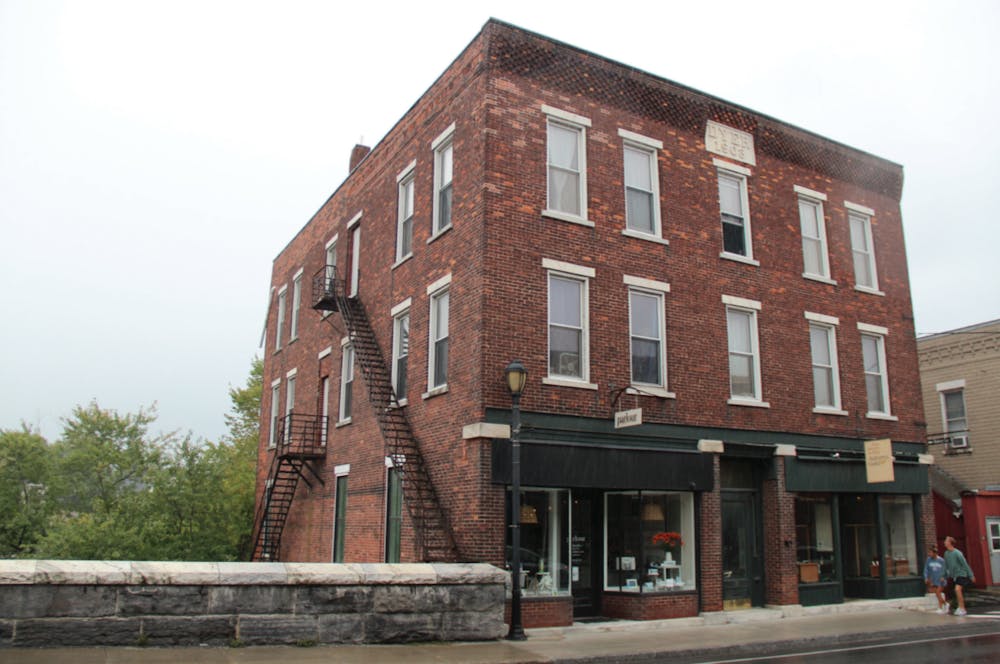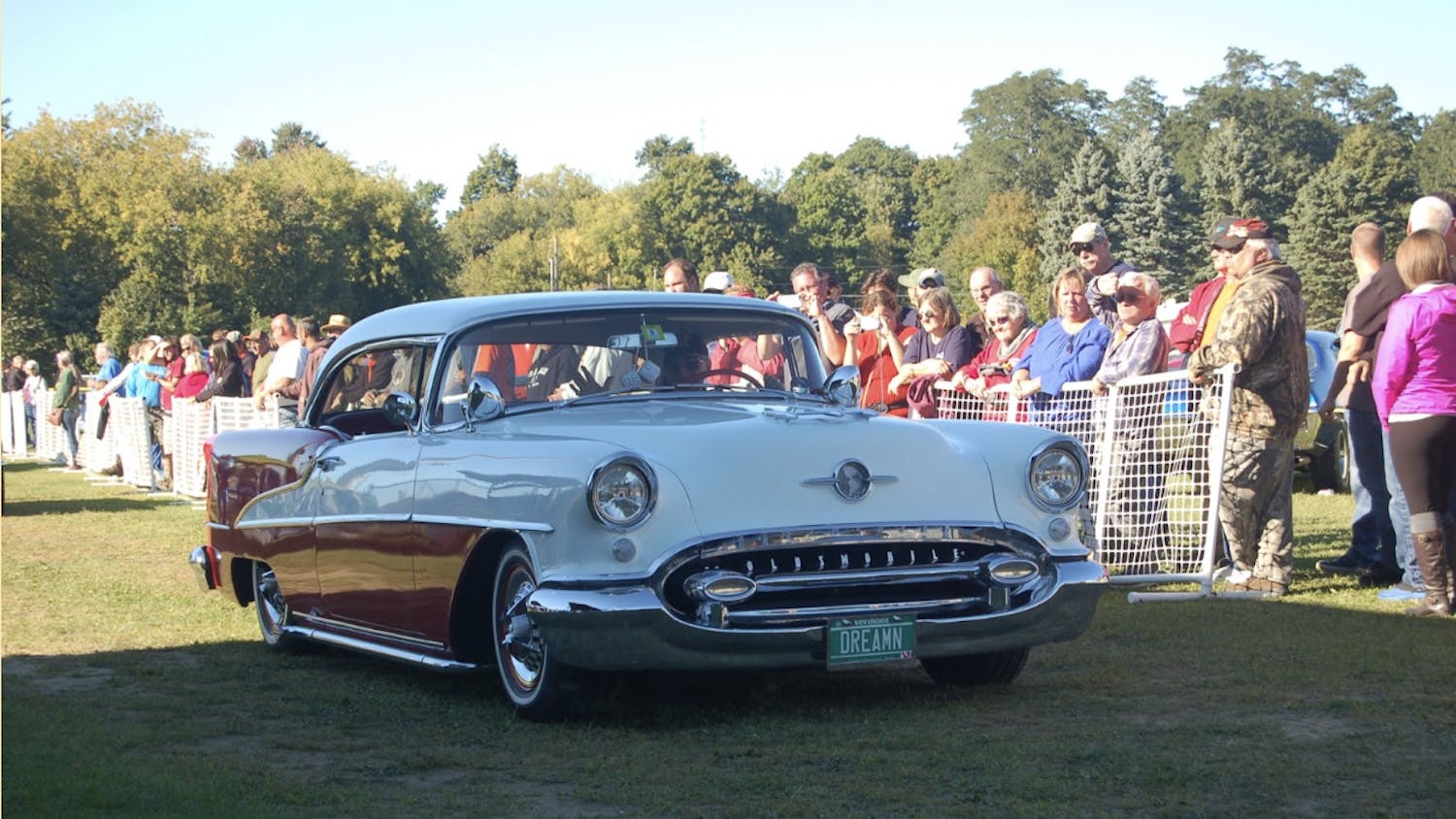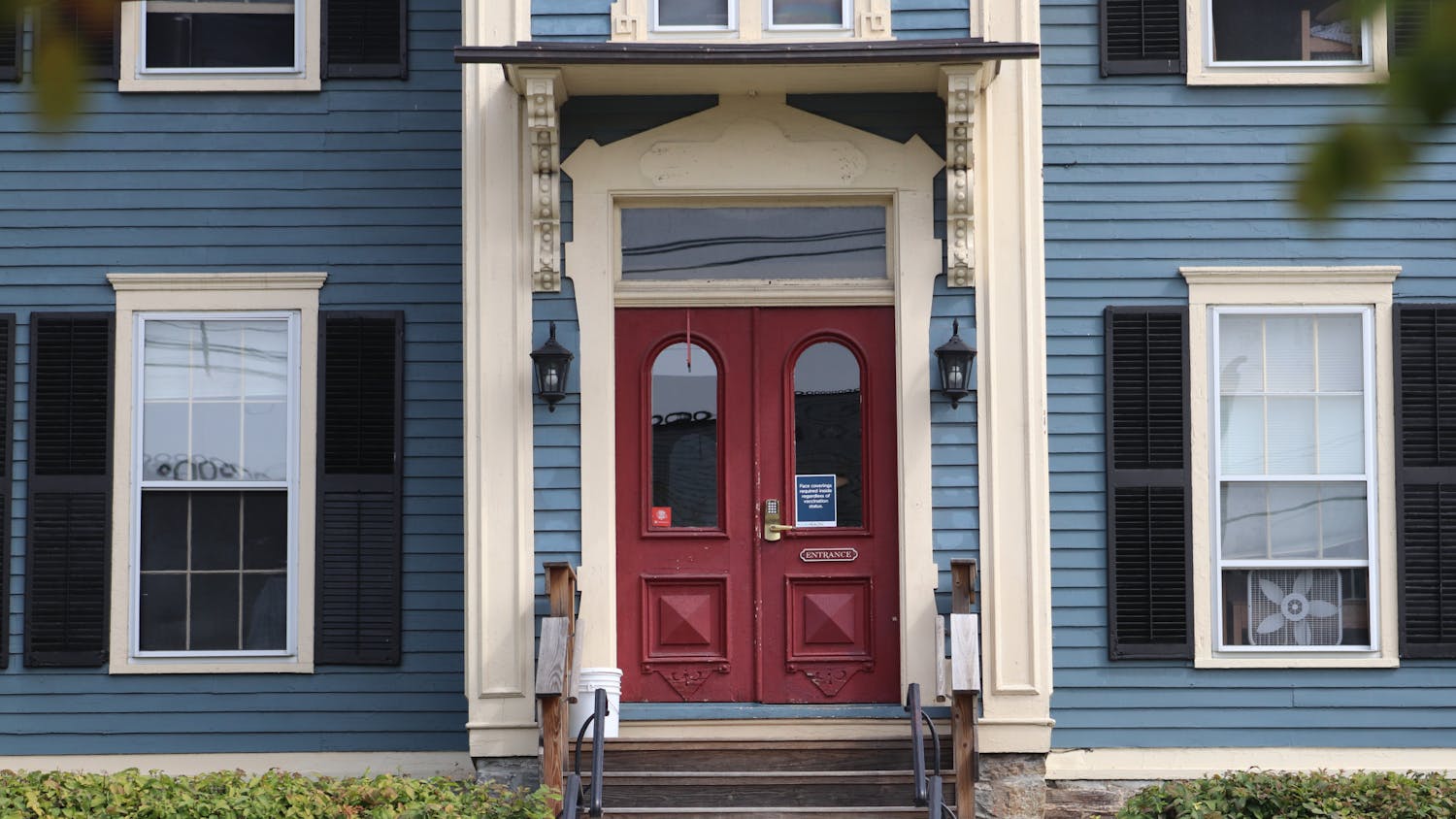A few weeks ago, students currently living off campus received an email from Dean of Students Derek Doucet informing them of recent updates for off-campus residences. Doucet noted the problematic behavior from student houses at the end of last academic year, which led to a recent attempt by frustrated neighbors to change town zoning laws.
“Many of you were quite literally one select board vote away from having no off-campus housing,” Doucet wrote in the email. “Fortunately, the select board opted to take a more measured approach for the time being, but it is essential that you act as respectful neighbors to those around you.”
The email refers to the Middlebury Selectboard meeting on Aug. 23 regarding a zoning by-law that would redefine student housing in the town. The proposed definition would limit tenant capacity for those residencies, which would directly impact some students’ ability to live off campus.
According to the minutes from the Selectboard meeting on Tuesday Aug. 23, the residents requested a change in the concentration of students in a property, which they believe would limit the tendency for misbehavior.
The minutes state that resident John Tenny said in the meeting, “the regulations on student occupancy needs to be applied by the property, not the apartment unit or bedrooms, or else you’ve nullified the attempt to limit the number.”
Selectboard member Andy Hooper told The Campus that the zoning by-law was part of the planning commission’s Amendments to the Town of Middlebury Zoning & Subdivision Regulations. The amendments required two public hearing meetings to pass, and no major changes to the amendments could be made between the hearings.
According to Hooper, there was no mention of the student housing in the first hearing. During the second hearing, however, residents brought forth the proposed amendment to the definition of student housing. The motion was passed 6–1 by the board, and Hooper was the only vote against.
However, the town attorney objected to the off-campus housing amendment passing in the second hearing because it was considered a major change between the first and second meeting, so the amendment was rendered null for procedural reasons. Hooper said it is unlikely that the amendment would be brought up again because of the significant ramifications it would have on student housing in town.
“None of this can be solved by zoning by-laws. There is want and need for students to be in the community,” Hooper said. “Middlebury College is a huge identity of the town, and the idea that the neighbors and the residents can completely control those interactions and separate the college and the town is not reasonable.”
According to Courtney Savage, assistant director for housing operations, there are 140 students living off campus this year. This is a substantially higher number than recent years, according to Savage and previous numbers reported by The Campus. The majority of these students were selected through the off-campus housing lottery process, and a few were approved through the Disability Resource Center.
In an email interview with The Campus, Doucet said the college regularly communicates with the town selectboard, and he attended the meeting where the zoning by-law was discussed.
“The vast majority of our students are respectful of town residents who live quite amicably with their neighbors. With that said, there are of course rare instances where this isn’t the case and student behavior negatively impacts their neighbors,” Doucet wrote. “When this happens and we are informed, we respond through our standard conduct policies.”
On Sept. 9, Doucet sent a letter to the residents in neighborhoods near student housing to establish a communications process. The letter contained a link to the Dean of Students webpage, where there is a submission form for complaints about off-campus student residences.
An article from The Addison Independent reported on the details of the Aug. 23 selectboard meeting. The vocal neighbors of off-campus students live in the North Pleasant Street and Washington Street areas. The Addy Indy reported three properties specifically referenced in the complaints, all of which are occupied by college students, a large percentage of whom are student-athletes.
According to the Addison Independent article, John McPartland, a resident near Washington St. Ext. wrote an email to Doucet after an incident occurred before the start of this academic year.
“By Sunday evening, when all nine (tenants) arrived, a fraternity spirit prevailed,” McPartland wrote in the email. “Lots of shouting, cheering and cursing over beer pong and cornhole games.”
Hans Pessl ’23 is a member of the nordic ski team and a current resident of one of the aforementioned houses on North Pleasant street, along with other members of the nordic and alpine ski teams. The College asks each off-campus house to designate a point person for communication with the school; Pessl is the current point person for the house.
Pessl told The Campus that he immediately noticed the hostility from the neighbors when they first moved in over the summer. According to Pessl, a group of seven students were gathered around a campfire playing quiet music, when their neighbor began swearing at them and spraying them with a hose. In total, neighbors have called the Middlebury Police Department on the house three times this year.
“It’s been nice working with the MPD,” Pessl said. “They have responded to calls from our neighbors, and each time they have filed the calls as unfounded. They tend to be in utter disbelief. I think they are a little fed up with it too.”
Middlebury Police Chief Tom Hanley told The Campus that his experiences with students have been positive. “It’s a culture thing for the neighborhood,” Hanley said. “They are used to a quiet neighborhood, and students will have to accommodate for that.”
Police reports also showed a collaborative effort between students and the MPD on multiple occasions when the noise complaints were unfounded. “Upon arrival I could hear no noise coming from the home,” read one report from September.
Pessl said he believes that this hostility from the neighbors is a result of bad behavior from the previous tenants of the house, who were also Middlebury students. Last year, neighbors reported incidents of trespassing and public urination after four consecutive parties thrown at the house by the previous tenants.
“We understand that we inherited this problem. We didn’t create it, but we are now bearing the brunt of it,” Pessl said.
Pessl and his housemates are working closely with their coaches and deans to build a friendlier relationship with their neighbors. To introduce themselves to the neighbors, Pessl said they were advised not to approach their neighbors’ houses directly, so they opted to mail letters instead.
Across town on Cross Street, Sam Korman ’22.5 lives with a group of his friends. Korman said his group was encouraged to live off campus last year due to the college’s over enrollment.
“So many people wouldn’t be living off campus if upperclassmen know they can get good housing on campus,” Korman told The Campus. “At the end of the day, over enrollment is the problem.”
Hooper noted that the landlord of one of the houses in question is a Middlebury parent who lives in Massachusetts, and some of the other houses are also owned by landlords who live far away. He said the absentee landlords for many of these rental properties adds to the problem.
“If you are like most of the landlords in town, then you are under much more pressure from the community to make sure people in your buildings are measuring up to what is expected. When you don’t live in that community, you don’t feel that pressure,” Hooper said.
The selectboard and Doucet also recognized that there are many student residents who have positive relationships with the town and their neighbors. While Korman and his housemates have received some noise complaints from the town, Korman said he has a good relationship with most of his neighbors.
“There is a certain liveliness to living in the town and being a part of the community,” Korman said. “I feel more ingrained in the community, and our neighbors have made an effort to get to know us.”
Pessl expressed a similar appreciation for the town’s close proximity with the college. He added that the college’s cohesiveness with the town is one of the reasons he chose to attend Middlebury.
“I wish our neighbors would just have a conversation with us,” Pessl said. “I think there are a lot of ways you can interact with us. Our neighbors are more than welcome to peer across the fence to check in and say, ‘Hi.’”




